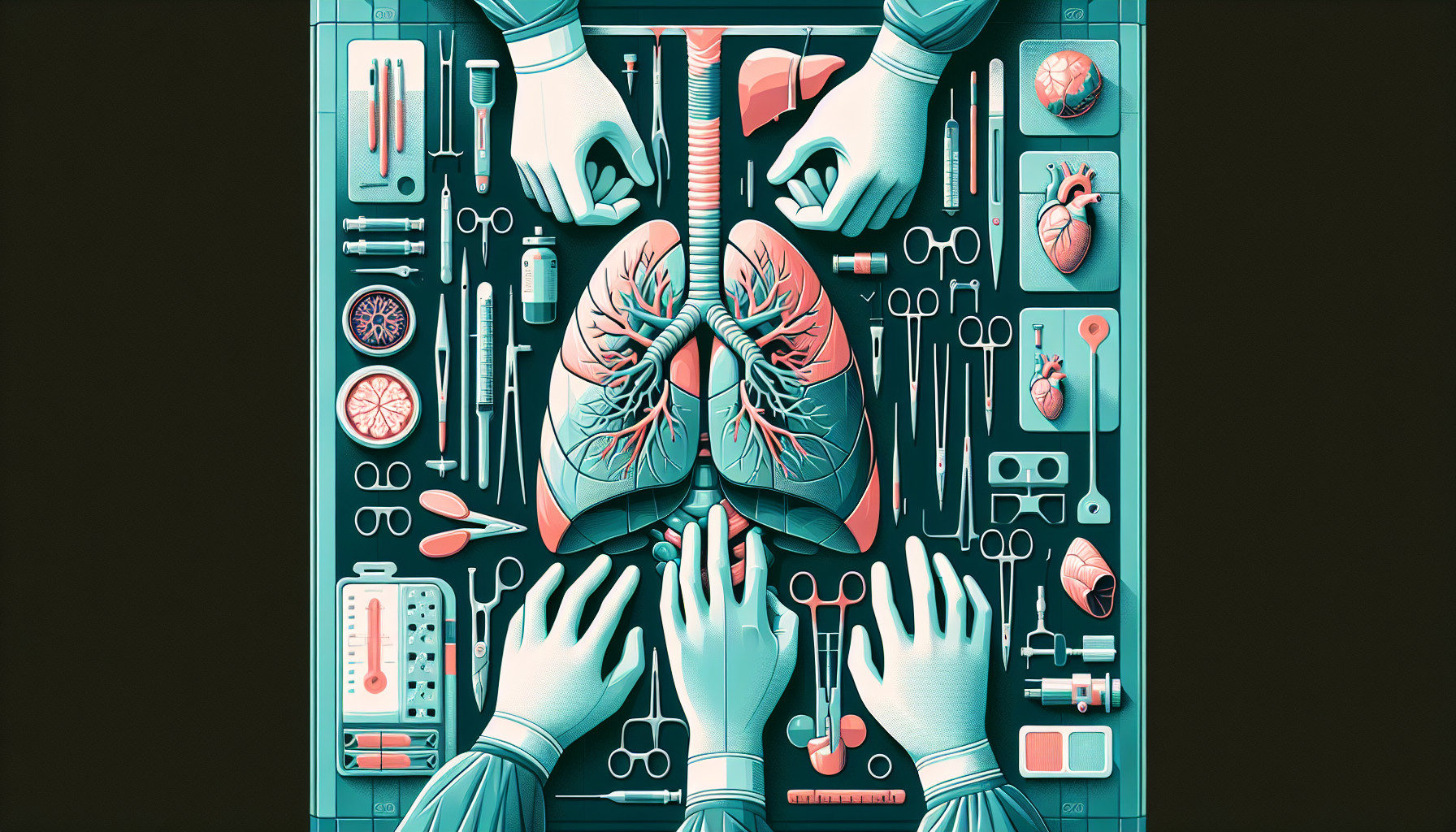Our Summary
This study looks at a very specific and complex surgical procedure called left-side secondary carina resection and reconstruction. This operation is only performed at a few specialized centers, and is used to treat a small number of patients with low-grade malignant bronchial tumors - a type of lung cancer.
The researchers reviewed the records of 23 patients who underwent this surgery at their center between January 2012 and September 2018. The patients’ average age was 44.5. They had a variety of different types of tumors, but all tumors were low-grade and malignant.
During the surgery, the affected part of the bronchus (the tubes that carry air to the lungs) was removed and then reconstructed. This was done while preserving as much of the lung tissue as possible.
The results showed that 13% of patients had at least one complication after surgery. However, there were no deaths. Two patients were found to have cancer spread to their lymph nodes and eight had some cancer left at the edges of the surgical area. Nine patients received additional treatment after surgery.
During the follow-up period, which lasted from 13 to 96 months, all patients were alive and free from cancer recurrence.
In conclusion, the authors suggest that this specific and complex surgery can be safely performed and can provide good short-term results when combined with additional treatments in suitable patients.
FAQs
- What is a left-side secondary carina resection and reconstruction?
- What were the results and complications found in patients who underwent this surgery?
- How effective is this surgery in treating low-grade malignant bronchial tumors?
Doctor’s Tip
One helpful tip a doctor might tell a patient about lung resection is to follow a comprehensive post-operative care plan, including proper wound care, pain management, and respiratory exercises to help with recovery. It is also important to attend all follow-up appointments and screenings to monitor for any potential complications or recurrence of the cancer. Additionally, maintaining a healthy lifestyle, including quitting smoking and staying active, can help improve overall lung health and reduce the risk of future complications.
Suitable For
Patients who are typically recommended lung resection are those with lung cancer, particularly low-grade malignant bronchial tumors. These patients may have tumors that are localized and have not spread to other parts of the body. Lung resection may be recommended for patients who are otherwise healthy and able to tolerate surgery and potential additional treatments. It is important for patients to be evaluated by a multidisciplinary team of specialists to determine if lung resection is the best treatment option for their specific case.
Timeline
Before lung resection:
- Patient is diagnosed with low-grade malignant bronchial tumor
- Patient undergoes various tests and consultations to determine the best course of treatment
- Surgery is scheduled and patient is briefed on the procedure and potential risks
- Patient undergoes pre-operative preparations, such as fasting and medication adjustments
After lung resection:
- Patient undergoes left-side secondary carina resection and reconstruction surgery
- Patient is closely monitored in the recovery room for any immediate complications
- Patient is transferred to a hospital room for further recovery
- Patient may experience pain, discomfort, and difficulty breathing
- Patient is gradually weaned off pain medication and encouraged to start moving and breathing exercises
- Patient receives follow-up care, including monitoring for cancer recurrence and additional treatments if necessary
Overall, the patient experiences a period of intense medical care and recovery before gradually returning to their normal activities with regular check-ups and monitoring.
What to Ask Your Doctor
Some questions a patient should ask their doctor about lung resection include:
- What type of lung resection procedure will be performed in my case?
- What are the potential risks and complications associated with this surgery?
- How long is the recovery time after lung resection surgery?
- Will I need additional treatments such as chemotherapy or radiation therapy after the surgery?
- What is the success rate of this specific type of lung resection surgery for my condition?
- How often will I need follow-up appointments and monitoring after the surgery?
- What lifestyle changes or precautions should I take after the surgery to promote healing and prevent complications?
- Are there any specific signs or symptoms I should watch for that may indicate a recurrence of cancer?
- Are there any support groups or resources available for patients who have undergone lung resection surgery?
- Are there any alternative treatment options that I should consider or discuss with my healthcare team before proceeding with lung resection surgery?
Reference
Authors: Campisi A, Chen L, Dell’Amore A, Ciarrocchi AP, Wang Z, Zhao H, Stella F, Yao F. Journal: Updates Surg. 2021 Dec;73(6):2363-2368. doi: 10.1007/s13304-021-01127-y. Epub 2021 Jul 6. PMID: 34228271
